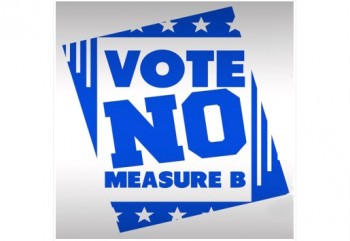CLEVELAND — Los Angeles’ Measure B “is a solution in search of a problem” and there is little evidence that the spread of STIs in the adult film industry is an actual problem, according to an article in the latest edition of Health Matrix: Journal of Law-Medicine, a biannual paper published by student editors at the Case Western Reserve University School of Law.
In the journal’ article, “Unwrapped: How the Los Angeles County Safer Sex in the Adult Film Industry Act’s Condom Mandate Hurts Performers & Violates the First Amendment,” author Jason Schachner wrote that most in society are familiar with the adult film industry but few understand it. And that extends to politicians and other lawmakers.
“The desire of California’s public officials to protect the health of a misunderstood and often criticized constituency is encouraging; but like an adult film scene, Measure B’s condom mandate does not reflect reality,” the journal said. “Performers and the citizens of Los Angeles County deserve serious legislation that is based on facts, not ‘feel good’ legislation based on assumptions.”
The 30-page article includes a thorough background on the history and issues of Measure B, including a glance at performer testing protocols employed by the Free Speech Coalition and the defunct AIM Healthcare Foundation.
It also gives a primer on the First Amendment, and answers why Measure B violates the First Amendment.
U.S. courts apply a two-tiered system of review in evaluating government restrictions on speech. The courts apply strict scrutiny when the restriction is content-based and applies intermediate scrutiny when the restriction is content-neutral.
First off, Schachner’s piece discusses why Measure B isn’t a content-based restriction on free speech, and the U.S. Supreme Court would not subject it to strict scrutiny.
“Measure B does not have an express content-based purpose, but in practice it restricts sexual speech on the basis of its content,” Schachner wrote.
Secondly, Schachner’s article discusses why Measure B shouldn’t survive intermediate scrutiny.
While Schachner states that Measure B serves a substantial government interest because the ordinance is aimed at the secondary effects of the failure of performers to utilize condoms during sex scenes — specifically STI and HIV transmission — he goes on to say that the law does not advance the government’s interest.
Keep Reading on Xbiz








[…] The 30-page article includes a thorough background on the history and issues of Measure B, including a glance at performer testing protocols …read more […]
Isn’t it interesting how people who really understand the issues – doctors, lawyers and public health officials, have little if anything good to say about Measure B or any similar law. They don’t think it will protect anybody. They don’t think it will address a significant problem. They don’t believe the “evidence” that’s been brought forth to support it. They don’t believe it’s constitutional. Now consider the “experts” AHF and Izzy Hall have trotted out to make their case for them. Does that motley crew look like a bunch of epidemiologists and legal scholars to you? When you don’t have… Read more »
[…] from exposure to, and infection by, sexually transmitted infections. However, the example of Measure B, the disastrous law which mandated condoms in Los Angeles County porn shoots, demonstrates that the […]